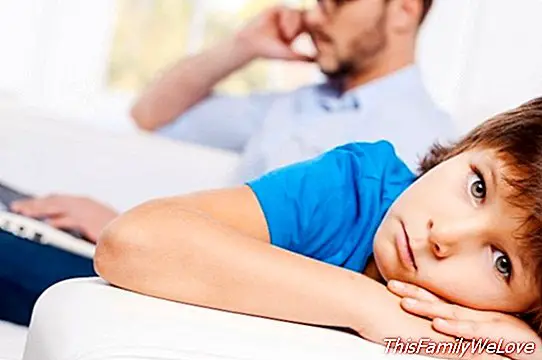Traumas in childhood have effects in adulthood

The traumas experienced during childhood are related to worse health when we reach adulthood. That is one of the conclusions of a recent investigation that has traced over several decades to more than 7,500 Britons born in 1958 and who has observed how adverse childhood experiences lead to greater physiological wear once those who have suffered them are adults.
The research, published in the 'Proceedings of the National Academy of Science (PNAS)', he assures that if children live in stressful psychosocial environments (especially, due to problems in the family), this is later reproduced in some way in the following decades of his life and is related to worse health data when you are an adult.
Traumas in childhood and its result in adulthood
The investigation has considered as "adverse experiences" familiar circumstances that, in general, cause stress to the kids: separation of the parents due to divorce or death, problems of alcoholism of a family member, problems with the justice or close persons with psychiatric illnesses.
Likewise, to measure the health status of the people studied during their adulthood, a series of biomarkers considered key to the health of people has been taken into account: the alternating pressure, triglycerides or cortisol.
How is this relationship explained? According to the authors of the research, the relationship between childhood traumas and subsequent health problems can be explained from different perspectives. For example, they say that children who have suffered this kind of trauma usually have a lower socio-economic and educational level.
But not only that, as described, children who have experienced these negative situations alsoare more likely to adopt risky behaviors for health when they are older: smoking, consuming alcohol or eating unhealthily (with the consequent increase in weight and body mass).
The results come to stand out the importance of children developing in healthy environments and away from avoidable stress symptoms. Likewise, the authors of the research assure that recognizing childhood "as a period of opportunities in terms of health would be crucial for the creation of new public health policies at the population level".
Therefore, they open the door to continue investigating to observe how parents transmit their social, economic and psychosocial capital to their children that can protect the health of children but, also, alter it if the conditions of development are not optimal.
Angela R. Bonachera




